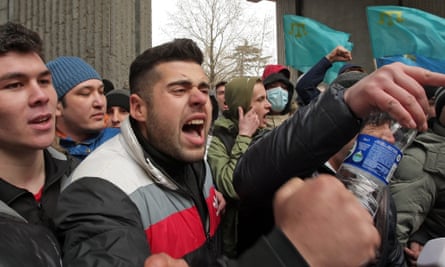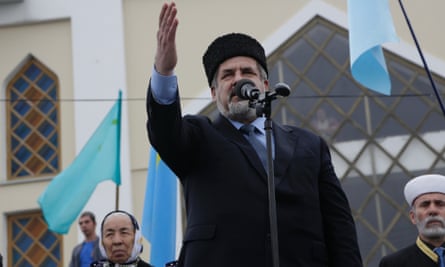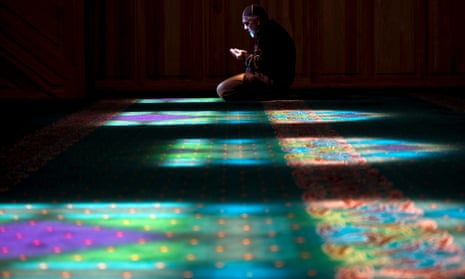The gravest ethnic and political conflict in Russia today is not to be found in Chechnya nor in the xenophobic capitals of Moscow and St Petersburg.
Rather, it stalks the newly acquired peninsula of Crimea and is bound up with the fate of the Crimean Tatars. It became clear soon after the sudden annexation of Crimea in March that modern Russia does not possess either the institutions or the tools to integrate an ethnic group with a strong sense of its own identity and a traumatic history. The usual methods employed by the Kremlin – bribery, intimidation and displacement – will only aggravate the conflict.
The Crimean Tatars are the ancient, native inhabitants of Crimea. They absorbed a great many of the peninsula’s different peoples and had their own state, the Crimean Khanate, for more than 300 years from the middle of the 15th to the end of the 18th centuries. Catherine the Great then annexed Crimea to the Russian empire but the Tatars hung on to their culture, language and religion – Sunni Islam.
In 1944, Stalin ordered that all 191,000 of them, all 47,000 families, be exiled to Central Asia. In 1954, Khrushchev transferred Crimea from the Russian to the Ukrainian Soviet Socialist Republic, but in March of this year Putin returned Crimea to Russia – despite the many pledges to guarantee Ukraine’s territorial integrity inscribed in Russia’s international treaties and agreements.
Along with Crimea came the Tatars, who were surprised to find that they were part of Russia (once more). They had begun to return to their homeland in droves under Gorbachev in the late 1980s, and by 2001 the Ukrainian census recorded 245,000 Crimean Tatars living on the peninsula. They now number some 300,000 and make up around 13% of Crimea’s population.

Ahead of the referendum in March on joining Russia, the executive arm of the Qurultay (Congress) of the Crimean Tatar People, the Mejlis, decided to boycott the vote. Mustafa Dzhemilev, the legendary leader of the Crimean Tatars and a Soviet dissident, confirms that 99% of his people boycotted it and that, far from the official figure of 83% of Crimeans turning out to vote, only 30-50% did so. The Crimean Tatar community did not therefore support union with Russia.
Likewise, the Tatar community did not, in the main, participate in the regional and local elections that took place on 14 September.
The hostility of most Crimean Tatars towards the idea of union with Russia caused a serious conflict with the pro-Moscow authorities. The Tatars’ leaders, Mustafa Dzhemilev and Refat Chubarov, current head of the Mejlis, have been barred from entering their homeland for five years and are now living in Kiev against their will.
Chubarov cannot see his relatives and convenes sessions of the Mejlis over Skype. The prosecutor justified the decision to deny them entry on the grounds that they are both allegedly engaged in “extremist behaviour”. Chubarov now intends to contest this decision before the European Court of Human Rights in Strasbourg.
In Crimea, even Dzhemilev’s books are banned. This is a man who spent many years in Soviet labour camps and prisons for defending the rights of his people.
Amongst those who came out in support of Dzhemilev at that time was Andrei Sakharov, nuclear physicist, Soviet dissident and winner of the Nobel Peace Prize in 1975.
On 18 May, the 70th anniversary of the deportation of the Crimean Tatars, a day when many thousands of people usually assemble in the centre of Simferopol to remember and mourn, the Crimean authorities banned the gathering on the pretext that it would be dangerous. The ban was an insult to the Tatar people, for whom the deportation remains the most terrible tragedy in their history.

Mosques, schools (madrasas), community centres, firms and private homes belonging to Tatars have been searched and raided by the Ministry of Internal Affairs (“anti-extremism” special branch), prosecutors and the Special Purpose Police, as well as so-called “self-defence forces”. The Crimean Tatars’ only independent television station, ATR, has come under heavy pressure and many activists, journalists and bloggers have been forced to leave Crimea.
All these violations are set out in a report written by Nils Muižnieks, the Council of Europe’s Commissioner for Human Rights, who himself visited Crimea.
He pays particular attention to the killing, abduction and disappearance of people in Crimea. Reshat Ametov was seized by three people in military fatigues on 3 March: his mutilated body was found two weeks later in the village of Zemlyanichnoe.
At the end of May three activists – Leonid Korzh, Seiran Zinedinov and Timur Shaimardanov – also disappeared. And on 27 September, Islyam Dzheparov and Dzhebdet Islyamov were stopped on the highway between Simferopol and Feodosia by people in military uniform and taken off to an unknown destination. Criminal investigations have been launched into these latter killings and abductions but neither the victims nor the perpetrators have yet been found.
Chubarov says that Moscow is now planning to repeat the “Chechen scenario” in Crimea, that is, to find a second Ramzan Kadyrov among the Crimean Tatars who could bring his turbulent people to heel using either money or force, thereby guaranteeing its loyalty.
If that is indeed the case then it is bad news. The Russian empire and the Soviet Union fell apart, to a great degree, because they were incapable of solving the nationality question. They tried to repress minorities and buy off national elites without leaving any space for the defence of human rights, let alone democratic dialogue or participation. The future of the Crimean Tatars may well point the way to the future of Russia itself, just as the fate of the Poles, Jews and Georgians determined the future of the Russian empire a hundred years ago.
Vladimir Ryzhkov is a historian and opposition politician, who was a Russian State Duma deputy from 1993 to 2007. This article first appeared on Ekho Moskvy. Translation by Cameron Johnston

Comments (…)
Sign in or create your Guardian account to join the discussion